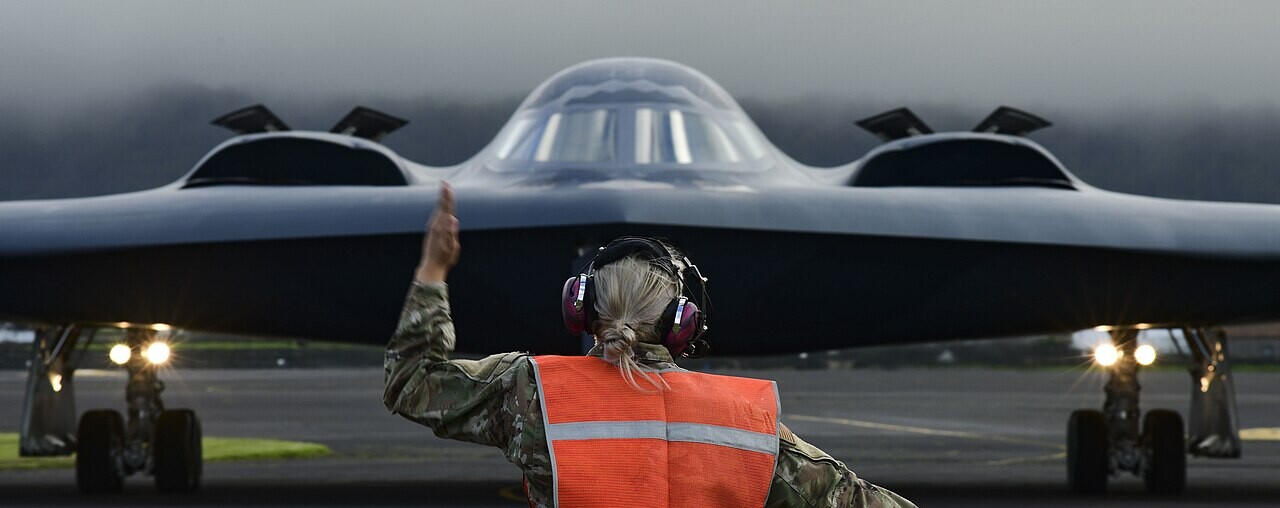Early next week, there will be a classified briefing to Senators on Iran, in which skeptical Congressional leaders will demand answers to fundamental questions. It will also be incumbent upon the White House to demonstrate to the American people that attacking Iran would be an act of necessity, with a plan for the aftermath, before launching the B-2 heavy bombers from Diego Garcia laden with GBU-57 30,000-pound bunker busters.
First, how good is the intelligence that indicates that Iran is on the verge of possessing a nuclear weapon?
Israel has been saying for years that Iran was close to the 90 percent enrichment threshold. As recently as March, Director of National Intelligence Tulsi Gabbard testified to Congress that Iran was not building a nuclear weapon. However, earlier this week, President Trump repudiated Gabbard’s view, positioning himself with Israeli Prime Minister Benjamin Netanyahu’s fear of an imminent threat. (RELATED: Trump Isn’t Looking for a Ceasefire. He Wants a No-Nukes Iran.)
Skepticism about the quality of intelligence is justified: Going to war against Iraq in 2003 based on the view that Saddam Hussein had WMDs was a massive intelligence failure, leading to chaos after the Battle of Baghdad and ultimately the rise of ISIS. Further, the resilience of the Taliban was underestimated before the U.S. withdrew from Afghanistan in 2021, another intelligence failure. (RELATED: Avoiding the Third World Wars)
Second, how cohesive is Iran, and what is the risk that it will become an ungoverned space, should the mullahs be ousted? Iran has a sense of Persian identity extending to the ancient world, and does not have the Shiite–Sunni fault line that divided Iraq. While much of the country is Persian, the coastal region of Iran has a significant Arab population, and roughly 20 percent of Iran is of Turkic ethnicity, and there are non-Turkic ethnic groups such as the Baloch, Kurds, Assyrians, and Armenians, to name some. (RELATED: Basic Thoughts on Iran)
End of Iran: Long-Term Plan?
Third, what is the plan for “the day after”? The U.S. was particularly inept at the reconstruction of Iraq, having dismissed thousands of Iraqi managers, military personnel, and officials controlling the security and infrastructure of the country to eliminate the Ba’athist Party — over 400,000 people by one estimate. In the case of Iran, the opposition must be well-defined and empowered to take over. So, who are they and how well do we know them — and can they be trusted to dismantle all WMD infrastructure?
Fourth, if the U.S. is seen symbolically as Israel’s “sword of Gideon,” how will it engage the Muslim world in the future? There may be rage in the streets from the Philippines to Morocco, and blood may well prove to be thicker than what was the fear of Iran. Moreover, the U.S. Central Command is based in Qatar, and we have military bases in Saudi Arabia, Bahrain, and other countries of the Middle East.
Fifth, what is the plan to respond to attacks by Iranian forces or proxies on U.S. embassies, NGOs, corporations, and maritime assets in the Gulf, and how do we assure that after the potential destruction of Fordow, the U.S. engagement will be short? Not only that, but how is the U.S. homeland protected against Iranian retaliation by means of sleeper cells that are activated?
Finally, will the destruction of Fordo and its centrifuge halls, which is by no means certain, and other damage to Natanz and other sites really be enough?
The world needs an Iran integrated into trade and capital flows. Ranking third in oil reserves after Venezuela and Saudi Arabia, Iran has a relatively large industrial base for a Middle East oil producer, as well as an accomplished scientific community. A moderate, secular Iran would be a relief and stabilizing force in the region, with a vested interest in integration with the West, reminiscent of earlier Pahlavi times when Iran was a bulwark against Russian influence and was America’s gendarme in the Gulf region.
The power of the American presidency, regardless of party affiliation, can inspire, influence, and fascinate abroad, and Iran is no exception. President Trump should appeal to the Iranian people to remove their theocratic leadership and rejoin the world community, ending years of isolation, sanctions, and pariah status. It is well known that the merchants, women, students, middle class, and remnants of the Iranian aristocracy despise their government. Civil disobedience — when people refuse to cooperate with their government — brought down the British Raj in India. A personal appeal by President Trump to the Iranian national security apparatus not to suppress the will of their citizens would also go a long way to embolden opponents of the regime.
READ MORE from Frank Schell:
Defang Iran and Support the Iranian Good Guys
The U.S. Needs Street Smarts to Deal With Iran
Frank Schell is a business strategy consultant and former senior vice president of the First National Bank of Chicago. He was a Lecturer at the Harris School of Public Policy, University of Chicago, and is a contributor of opinion pieces to various journals.






















